
Marshall Engineering Stormwater Inspection, Compliance and Reporting, or “SICR”, will provide inspections of all construction activities to ensure stormwater run-off compliance. (Per General Order No. XXXXX). (Note: New permit has not yet been approved)
Inspections will include a detailed site visit, photographs, on-site recommended corrections, water quality testing (if required) and a summary report for each site at the end of each month. Maintain site records for 3 years as required by General Permit (Order No. XXXXX).
“All dischargers subject to the General Permit (Order No. XXXXX) shall develop and implement a Construction Site Monitoring Program (CSMP). The CSMP shall be developed prior to the commencement of construction activities, and revised as necessary to reflect project revisions.”
Marshall Engineering Stormwater Inspection, Compliance and Reporting will address the following objectives:
To ensure the construction site is in compliance with the requirements (e.g. Discharge Prohibitions, Numeric Action Levels (NALs), and Numeric Effluent Limitations (NEL’s) of the General Permit.
To determine whether non-visible pollutants that are known or should be known to occur on the construction site are causing or contributing to exceedances of water quality objectives;
To determine whether immediate corrective actions, additional Best Management Practice (BMP) implementation, or SWPPP revisions are necessary to reduce pollutants in storm water discharges and authorized non-storm water dischargers; and
To determine whether BMP’s included in the SWPPP/Rain Event Action Plan (REAP) are effective in preventing or reducing pollutants in storm water discharges and authorized non-storm water discharges.
“The discharger shall develop a written site-specific CSMP that includes all monitoring procedures and instructions, location maps, forms and checklists as required in General Permit (No. XXXXX)”
Marshall Engineering “SICR” services will inspect and document the presence or evidence of any non-storm water discharge, pollutant characteristics (floating and suspended material, sheen, discoloration, turbidity, odor etc.), and source.
Marshall Engineering “SICR” services will maintain site records indicating the personnel performing the visual observation (inspections), the dates and approximate time each drainage area and non-storm water discharge was observed, and the response taken to eliminate unauthorized non-storm water discharges and to reduce or prevent pollutants from contacting non-storm water discharges.
Marshall SICR will inspect construction sites bi-weekly and provide detailed reports monthly.
Marshall SICR will inspect stormwater discharges at all discharge locations within one business day after each qualifying rain event.
Marshall SICR will record the time and date of any qualifying rain event and maintain records of all inspections.
Marshall SICR, within 48 hrs. Of each qualifying rain event, will visually inspect and document;
All storm water drainage areas to identify any spills, leaks, or uncontrolled pollutant sources and implement appropriate corrective actions.
All BMP’s to identify whether they have been properly implemented in accordance with the SWPP/REAP and implement corrective actions; and
Any storm water storage and containment areas to detect leaks and ensure maintenance.
Our goal is to ensure compliance with General Permit (order No. XXXXX), increased productivity by allowing construction management staff to focus on building and oversight, while protecting California’s water sources and eliminating any risk of penalties by the EPA or California State Water Board.
Our staff has been throughly trained in Stormwater Pollution Prevention Plans< (SWPPP), Water Quality Management plans, (WQMP), Standard Urban Stormwater Mitigation Plans, (SUSMP). In addition our staff has been certified in Commercial Storm Water Inspection Training and strives to provide the best costumer service and support for all your construction activities.
Inspection Includes:
Travel Time
Water Sampling & Testing (if required)
Site Inspections, Photographs, meeting with Superintendent/Foreman:
Report Preparation, including photos and corrective action:
Report retention for 3 years
Call us today for a quote: (626) 914-5788 or email us at Bill@megi.bz
land surveying consulting engineers engineers land surveys land survey professional surveyors professional engineers engineering surveying engineering firm construction surveyors surveyors engineering consulting construction engineers engineering consultants land surveying companies land survey cost professional engineer land survey jobs land survey company land survey companies land survey services boundary surveys land surveyer construction surveying boundary survey engineering engineering surveyors topographic surveys surveying companies engineer surveying company site surveying surveying services surveyor surveying land surveying firm engineering firms structural engineering firms civil surveying consulting engineer topographic survey surveying engineering jobs design engineers engineering consultant topographic surveying construction surveyor engineering services architectural engineering elevation certificate engineering design engineering company land surveying job building surveyor building surveying land surveying software find land surveying land surveying service land surveying services land surveying company construction engineer land surveying schools engineering surveys how to survey land construction engineering land survey service land title survey boundary surveying land surveyers boundary surveyors topographical surveyors public land survey professional engineering professional land surveying licensed surveyors professional surveyor professional engineering exam topographic surveyors environmental engineering topographical surveys property line survey engineering surveyor surveying job professional engineer license surveying engineers residential surveying find a surveyor civil software surveying engineer licensed surveyor land development surveyor firm construction engineering consulting land surveying firms surveying firm construction engineering consultants construction engineering consultant
Property Marshall engineering group INC. scope of work as follows:
What is at risk?
Penalties for Violations of Permit Conditions
Section 309 of the CWA provides significant penalties for any person who violates a permit condition implementing Sections 301, 302, 306, 307, 308, 318, or 405 of the CWA or any permit condition or limitation implementing any such section in a permit issued under Section 402. Any person who violates any permit condition of this General Permit is subject to a civil penalty not to exceed $27,500 per calendar day of such violation, as well as any other appropriate sanction provided by Section 309 of the CWA.
Home Builders Clean Water Settlement
WASHINGTON—Four of the nation’s largest home builders have agreed to pay civil penalties totaling $4.3 million to resolve alleged violations of the Clean Water Act, the Justice Department and U.S. Environmental Protection Agency (EPA) announced today. The companies also have agreed to implement company-wide compliance programs that go beyond current regulatory requirements and put controls in place that will keep 1.2 billion pounds of sediment from polluting our nation’s waterways each year.
“EPA requires that construction sites obtain permits and take simple, basic steps to prevent pollutants from contaminating storm water and harming our nation’s waterways,” said Granta Y. Nakayama, assistant administrator for EPA’s Office of Enforcement and Compliance Assurance. “Today’s settlement sets a new bar for the home building industry."
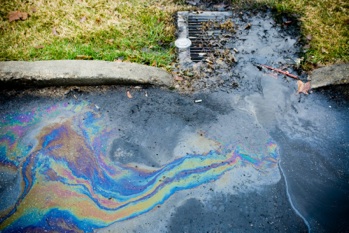
Marshall Engineering Group Inc. is proud to introduce a storm water inspection, compliance and reporting service to their suite of civil engineering, land surveying and reprographic services.
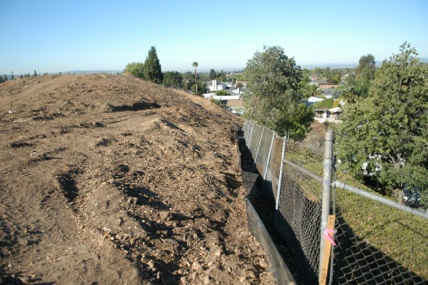
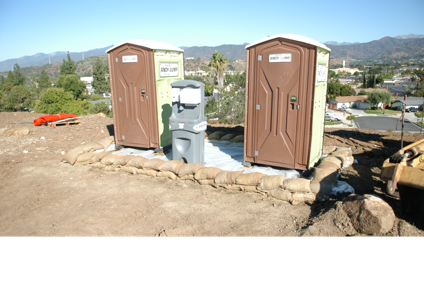
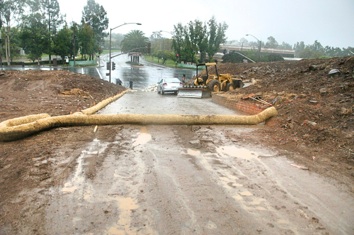
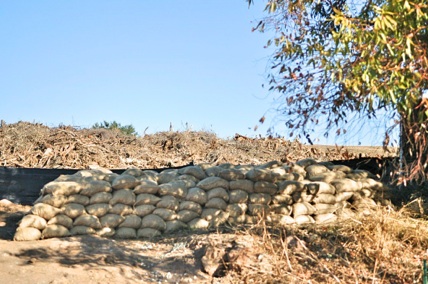
Four of the Nation’s Largest Home Builders Settle Storm Water Violations
Release date: 06/11/2008
Contact Information: Roxanne Smith, (202) 564-4355 / smith.roxanne@epa.gov
(Washington, D.C. - June 11, 2008) Four of the nation’s largest home builders have agreed to pay civil penalties totaling $4.3 million to resolve alleged violations of the Clean Water Act, the Justice Department and Environmental Protection Agency announced today. The companies also have agreed to implement company-wide compliance programs that go beyond current regulatory requirements and put controls in place that will keep 1.2 billion pounds of sediment from polluting our nation’s waterways each year.
“EPA requires that construction sites obtain permits and take simple, basic steps to prevent pollutants from contaminating storm water and harming our nation’s waterways,” said Granta Y. Nakayama, assistant administrator for EPA’s Office of Enforcement and Compliance Assurance. “Today’s settlements set a new bar for the home building industry.”
“Today’s settlements mark an important step forward in protecting our waters from harmful storm water runoff from construction activities,” said Assistant Attorney General Ronald J. Tenpas. “In the future, these homebuilders will implement company-wide compliance programs that will provide better and more consistent protections at their construction sites across the country.”
The homebuilders are Centex Homes, based in Dallas; KB Home, based in Los Angeles; Pulte Homes, based in Bloomfield Hills, Mich.; and Richmond American Homes, based in Denver. The four separate settlements resolve alleged violations of storm water run-off regulations at construction sites in 34 states and the District of Columbia. Each company will pay the following penalties:
Centex: $1,485,000
KB Home: $1,185,000
Pulte: $877,000
Richmond: $795,000
Pulte Homes has also agreed to complete a supplemental environment project at a minimum cost
of $608,000. The project will reduce the amount of sediment going into a northern California watershed and improve the habitat for aquatic life.
Along with the federal government, seven state co-plaintiffs have joined the settlements. Those states include Colorado, Maryland, Virginia, Missouri, Nevada, Tennessee, and Utah. Each of the seven states will receive a portion of the penalties based on the number of sites located within that state.
Combined, the four builders accounted for more than 124,000 home closings in 2006, and are ranked nationally among the top ten builders in terms of home closings and revenues.
The government complaints allege a common pattern of violations that was discovered by reviewing documentation submitted by the companies and through federal and state site inspections. The alleged violations include not obtaining permits until after construction had begun or failing to obtain the required permits at all. At the sites that did have permits, violations included failure to prevent or minimize the discharge of pollutants, such as silt and debris, in storm water runoff.
The settlements require the companies to develop improved pollution prevention plans for each site, increase site inspections and promptly correct any problems that are detected. The companies must properly train construction managers and contractors, and are required to have trained staff at each construction site. They also must implement a management and internal reporting system to improve oversight of on-the-ground operations and submit annual reports to EPA.
Improving compliance at construction sites is one of EPA’s national enforcement priorities. Construction projects have a high potential for environmental harm because they disturb large areas of land and significantly increase the potential for erosion. Without onsite pollution controls, sediment-laden runoff from construction sites can flow directly to the nearest waterway and degrade water quality. In addition, storm water can pick up other pollutants, including concrete washout, paint, used oil, pesticides, solvents and other debris. Polluted runoff can harm or kill fish and wildlife and can affect drinking water quality.
The settlements are the latest in a series of enforcement actions to address storm water violations from construction sites around the country. A similar consent decree, reached in February with Home Depot, required the company to pay a fine of $1.3 million and establish a comprehensive storm water compliance plan to prevent future violations.
The Clean Water Act requires that construction sites have controls in place to prevent pollution from being discharged with storm water into nearby waterways. These controls include simple pollution prevention techniques such as silt fences, phased site grading, and sediment basins to prevent common construction contaminants from entering the nation’s waterways.
The consent decrees, lodged in the U.S. District Court for the Eastern District of Virginia, are subject to a 30-day public comment period and approval by the federal court. The companies are required to pay the penalty within 30 days of the court’s approval of the settlement.
DEVELOPERS FINED, ITS THE LAW!!!